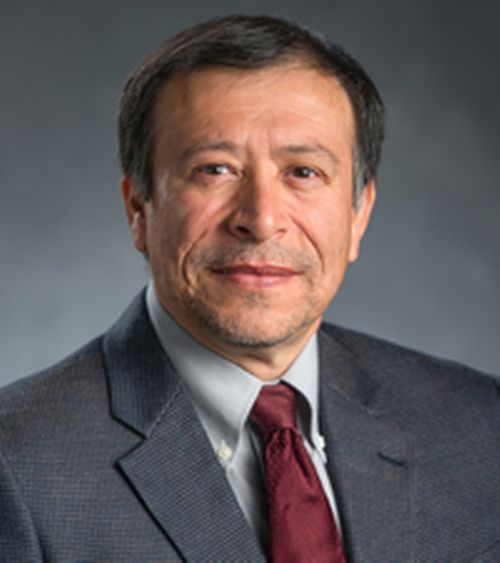MSU entomologist leads training for Latino/a farmers, receives new $600K USDA grant
MSU's La Cosecha (a Spanish word for harvest) program, which provides training for first- and next-generation Latino/a farmers in Michigan, has received a $600,000 grant from the U.S. Department of Agriculture’s National Institute of Food and Agriculture.

Michigan State University’s La Cosecha (a Spanish word for harvest) program, which provides training for first- and next-generation Latino/a farmers in Michigan, has received a $600,000 grant from the U.S. Department of Agriculture’s National Institute of Food and Agriculture (NIFA).
David Mota-Sanchez, an assistant professor in the MSU Department of Entomology, leads the project, which is part of NIFA’s Beginning Farmer and Rancher Development Program. MSU researchers, outreach specialists and other partners have been working since 2018 to empower disadvantaged Latino/a farmers using previous NIFA funding.
“We want to help Latino/a farmers improve the sustainability of their operations,” Mota-Sanchez said. “Equipping them with tools to ensure the long-term success of their farms will also bring the next generation into the fold.”
Objectives of La Cosecha include:
- Increasing participation in USDA programs.
- Improving access to integrated pest management (IPM) programs.
- Training on pesticide education and safety, including Good Agricultural Practices (GAPs) training.
- Creating business management plans in cooperation with farmers.
- Helping new farmers understand crop diversification, access to pollinators services, packaging technologies, marketing and access to food systems.
Programming is geared toward beginning farmers and farm laborers, as well as their children (sons-hijos and daughters-hijas).
“Getting the second generation involved is a critical component to the training,” Mota-Sanchez said. “Farming is often a multi-generation endeavor for families, and if we can increase the knowledge and skill sets early, it bodes well for the future of the business.”
Mota-Sanchez said current farmers can benefit from the trainings and interested members of the Latino/a community with non-agriculture backgrounds are provided resources to get started.
Workshops are bilingual and include training on IPM, food safety, marketing and business, 4-H programs introducing youth to agriculture, how to access USDA programs, and pesticide education.
The first group of farmers that participated in La Cosecha was going to be honored on the MSU campus March 29, but the novel coronavirus pandemic caused the event to be canceled.
“It’s unfortunate because this was going to be the first time in the history of the university that we honor this segment of the farming community on the MSU campus,” said Luis Alonzo Garcia, director of migrant student services at MSU and a co-leader of the project. “La Cosecha has linked Latino/a farmers to critical resources and programs, and this has been an underserved audience in Michigan and around the country. With this new funding, we’ll continue to provide training to farmers and hopefully generate more interest in farming among the Latino/a community.”
Other co-leaders of the project are John Wise, a professor in the MSU Department of Entomology; Don Kuchnicki, the state director for Michigan at the Telamon Corporation; and Antonio Castro-Escobar, a specialist in worker protection and restricted use pesticides at the Michigan Department of Agriculture and Rural Development.
Also are part of the team are Eva Almenar, an associate professor in the MSU School of Packaging; Florencia Colella, MSU Extension farm business management educator; Ben Werling, MSU Extension commercial vegetable production educator; Ana Heck, MSU Extension apiculture educator; Mariel Borgman, MSU Extension community food systems educator; Juan Pedro Solorio, MSU agriculture specialist; Omar Posos, MSU logistics; Salvador Chavez-Lemus, field service representative at Telamon; and Angel Zamora, outreach specialist at Telamon.



 Print
Print Email
Email





